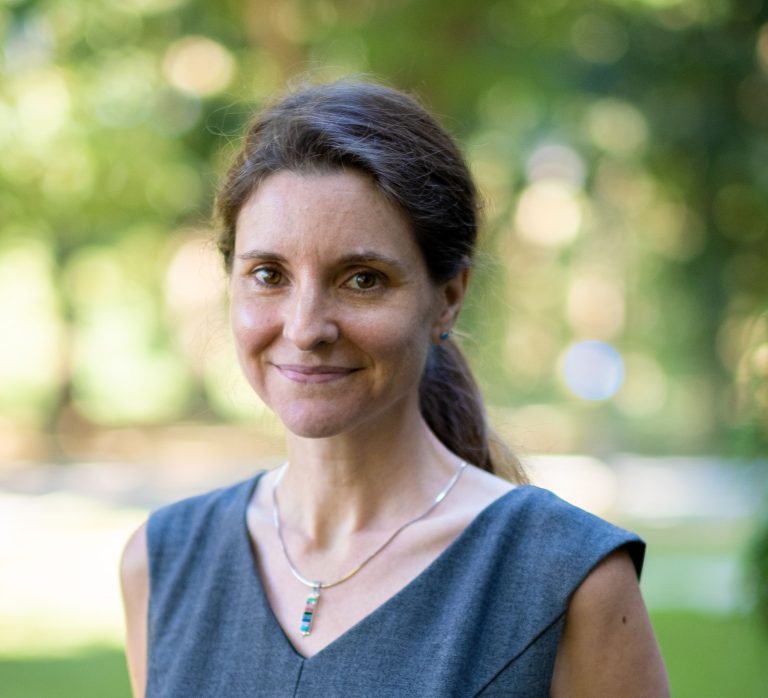Building Stronger Connections And Keeping More Businesses In The African Diaspora Community – Dr Ava Eagle Brown

Have you ever wondered why, despite the rich cultural heritage and deep connections shared among African Diaspora communities, businesses often struggle to collaborate effectively? What if we could leverage our shared stories, histories, and values to create thriving ecosystems of businesses within our own communities? How much stronger could the “black pound” become if we truly supported each other?
Learn How to Leverage Your Story through our Story To Asset Framework.
Dr. Ava Eagle Brown, a business strategist and advocate for the African Diaspora, believes, as a guest at the Obehi Podcast, that the answer lies in fostering trust, building genuine relationships, and harnessing the power of storytelling to create a more sustainable future for us all.
See the full podcast interview Dr Ava Eagle Brown
But there’s more to it than just a shared belief. Dr. Brown’s journey, filled with both setbacks and triumphs, reveals how we can overcome trust issues and unlock untapped potential in our businesses. Here’s why you should pay attention.
The African Diaspora’s Untapped Potential
When you think about the African Diaspora, what comes to mind? For many, it’s the shared sense of history and culture, a deep connection to roots that span across continents. But there’s a growing realization that this heritage is not just a bond, but a potential business powerhouse.
See also Building Bridges with Stories: How Social Impact Storytelling Fosters Unity in the African Diaspora
If you look at the numbers, the African Diaspora is an economic force. In 2019, the African-American community alone wielded a purchasing power of approximately $1.4 trillion. When you add the wealth and influence of the African Diaspora across Europe, the Caribbean, and beyond, the potential is staggering.
Yet, as Dr. Ava Eagle Brown points out in her conversation on the Obehi Podcast, we haven’t yet maximized this potential, especially when it comes to business. Dr. Brown believes that the answer lies within the very fabric of the Diaspora: mutual trust and collaboration.
She explains, “By doing business with one another, we create a new cultural landscape with a stronger foundation. We understand each other, share the same genetic background, and can trust each other while having common goals.”
However, we must acknowledge that this is easier said than done. Despite the shared cultural connections, business transactions within the African Diaspora often struggle due to one major barrier: trust.
The Trust Barrier: A Personal and Collective Struggle
If you’ve ever tried to do business within the African Diaspora, chances are you’ve encountered challenges related to trust. Dr. Ava certainly has. “I lost $100,000 in the UK due to being conned by black people, which left me homeless,” she recalls. “And these aren’t isolated incidents. I’ve had issues with unscrupulous business behavior on LinkedIn and even had to fight to protect my intellectual property.”
Such painful experiences have led some entrepreneurs in the Diaspora to become wary of working with people who share their heritage. And while these negative experiences should never be downplayed, Dr. Ava’s story is a testament to the fact that one bad experience shouldn’t define an entire community. “Yes, we need to address the trust issues, but we also need to push forward,” she urges.
See also The Power of Diaspora: How Cultural Tourism is Shaping the African Diaspora’s Connection to Heritage
The data supports her optimism. A 2018 McKinsey report shows that the African-American business landscape in the U.S. has grown significantly in the past few decades.
Despite the challenges, African-American businesses were the fastest-growing group of businesses in the country in 2017, outpacing all other racial and ethnic groups.
The same trend is visible across the UK and Europe, with the number of black-owned businesses increasing year after year. These statistics reflect resilience and the desire to build, even when the odds are stacked against us.
That being said, building trust and overcoming barriers within the African diaspora community and its business ecosystems can be achieved through a variety of effective strategies. Here are three strategies:
1. Facilitate Open and Transparent Communication
Why it’s effective: Open communication is crucial for building trust. In many African diaspora communities, there may be cultural differences or historical distrust, especially when dealing with new business partners or investors. By fostering an environment of transparency, businesses can address concerns, clarify expectations, and reduce misunderstandings.
How to implement: Organize regular community meetings, webinars, or forums where members can share their business challenges, successes, and ideas. Encourage honest conversations about cultural expectations and business norms to bridge gaps and ensure alignment.
2. Create Collaborative Networks and Mentorship Programs
Why it’s effective: The African diaspora often consists of individuals with a wealth of knowledge and experience across various sectors. Creating collaborative networks and mentorship programs allows for knowledge sharing, skill development, and relationship building, helping to break down barriers that may exist due to limited resources or experience in the local business environment.
How to implement: Establish networks of diaspora entrepreneurs, investors, and professionals who can offer advice, support, and guidance. Launch mentorship programs that connect seasoned business leaders with emerging entrepreneurs to promote growth, collaboration, and mutual success.
3. Promote Community Investment and Economic Empowerment Initiatives
Why it’s effective: Economic empowerment is central to overcoming systemic barriers. By encouraging the African diaspora community to invest in each other’s businesses it creates a culture of reciprocity and shared success. When businesses support one another and reinvest in the community, trust builds naturally.
See also Building a Community Around Your Podcast: How Creative Entrepreneurs Can Engage Listeners
How to implement: Develop initiatives that focus on local business growth, such as creating investment pools, facilitating crowdfunding platforms, or encouraging diaspora-led ventures to create job opportunities within the community. Additionally, highlight the success stories of diaspora entrepreneurs who have overcome barriers to inspire others.
These strategies can help foster a sense of unity, reduce barriers, and ensure that trust develops in both community and business ecosystems.
The Role of Storytelling: Building Trust One Narrative at a Time
Dr. Ava believes that the key to overcoming the trust gap is simple: storytelling. “When we share our personal stories and experiences, we build authentic connections that transcend business transactions,” she says.
Storytelling, when used strategically, can humanize brands and create deep emotional connections with consumers. It’s not just a marketing tool; it’s a way to create relationships.
In fact, studies have shown that storytelling is one of the most powerful ways to build trust in business. According to Harvard Business Review, 92% of consumers want brands to make ads that feel like a story.
This is especially true in communities where personal experiences and shared struggles resonate. For African Diaspora entrepreneurs, weaving cultural narratives into their businesses can foster a sense of belonging and authenticity that can drive customer loyalty.
Take, for instance, Dr. Ava’s own journey. Born into poverty in rural Jamaica, she faced unimaginable hardships, including sexual abuse and being held at gunpoint. Yet, she didn’t let these experiences define her.
Instead, she transformed them into fuel for her success, choosing grace over anger. “I’m just that little girl from Jamaica who was born into poverty, sold mangoes on the train, and turned my life around,” she reflects. “Now, I help others do the same.”
By sharing her personal story, Dr. Ava has built a brand that resonates with many in the Diaspora. Her story is one of resilience, strength, and the unwavering belief that we all have the power to change our circumstances.
And that’s what sets impactful entrepreneurs apart: the ability to connect their personal journey to the collective experience of the African Diaspora.
Overcoming Challenges Through Collaboration
One of Dr. Ava’s key beliefs is that collaboration is more important than competition. Despite her past setbacks, she continues to do business with teams across the Diaspora—whether in Nigeria, Jamaica, or the UK—because she believes in the power of community. “We need to foster stronger links between Africa and the Diaspora,” she says. “And it starts with collaboration.”
This isn’t just an idealistic vision; it’s practical. African Diaspora entrepreneurs can start small by creating local networks, supporting one another’s ventures, and sharing knowledge.
But scaling this to a global level requires more than just wishful thinking. It involves creating platforms for connection, mentorship, and joint ventures. It means prioritizing long-term relationships over short-term profits.
One example of such collaboration can be found in the film industry, where Dr. Ava is actively working to bridge the gap between young filmmakers in Africa and the Caribbean.
She’s organizing a film festival, with the goal of bringing together aspiring directors from Jamaica and Africa to collaborate. It’s initiatives like these that not only foster trust but create tangible business opportunities for the next generation of entrepreneurs.
The Path Forward: Building a Stronger Future Together
As entrepreneurs in the African Diaspora, you have a unique opportunity to be part of something bigger than just business. You’re not only creating wealth; you’re shaping a community that can change the global economic landscape. But to truly succeed, you need to lean into the power of trust, collaboration, and effective storytelling.
Yes, there will be challenges along the way. You might face setbacks, disappointments, and even betrayal. But as Dr. Ava wisely says, “You can’t give up after one bad experience.” It’s time to push forward, strengthen relationships, and invest in each other’s success.
The African Diaspora is a powerful economic force—if we learn to work together. It’s not about simply doing business; it’s about building a legacy, creating opportunities, and empowering future generations.
The power lies in your hands. Will you take that first step toward collaboration and growth? Will you be the storyteller who changes the narrative for the better?
Conclusion
The African Diaspora is filled with untapped potential. But that potential can only be unlocked if we start building businesses on trust, shared values, and the power of storytelling.
By overcoming the trust challenges and committing to collaboration, you, along with other African Diaspora entrepreneurs, can create a thriving, sustainable ecosystem that will not only benefit you but future generations to come.
The time is now. Together, we can make the African Diaspora a business force to be reckoned with.
Learn How to Leverage Your Story through our Story To Asset Framework.





